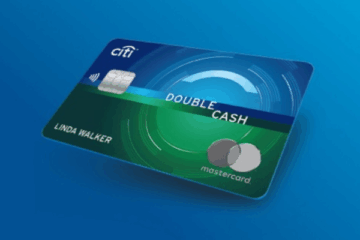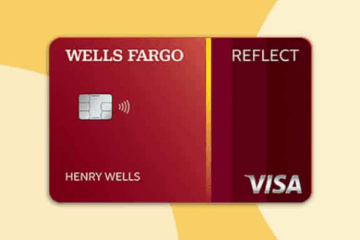How to Improve Your Financial Health This Year
Financial health is essential for a balanced and peaceful life. In Brazil, where economic instability is often a reality, taking care of your money is more than a matter of well-being: it’s a survival strategy. At the start of a new year, many people set themselves financial goals, but without a well-defined plan, these resolutions end up falling by the wayside. The good news is that with knowledge, discipline and the right strategies, you can transform your relationship with money and ensure greater security in the future.
Advertising
Improving your financial health doesn’t require huge immediate sacrifices, but it does require commitment and a keen eye on the present and the future. Adopting healthy financial habits, creating a robust plan and understanding the tools available on the market are crucial steps to achieving stability. This article presents the main strategies for improving your financial health and achieving your goals this year.
Financial Education: The First Step to Success
Advertising
Financial education is the basis for any positive change in your relationship with money. Unfortunately, in Brazil, most people have not been taught how to deal with finances, and basic concepts such as budgeting, saving and investing are still unknown to many. This scenario contributes to problems such as debt and a lack of planning for the future.

Investing in financial education can be as simple as searching for content online, watching videos by experts or taking part in free courses. Understanding topics such as compound interest, investment diversification and budget planning allows you to make more informed decisions. This knowledge enables you to avoid financial pitfalls, such as impulsive spending or unnecessary borrowing, and to create solid strategies for achieving your goals.
Advertising
Budget: Tailor-made Control and Planning
Having a well-defined budget is indispensable for improving your financial health. Often, the problem is not a lack of money, but poor money management. Knowing exactly how much you earn, how much you spend and where you can save is the first step towards organizing your finances and reducing waste.
An efficient strategy is to adopt the 50/30/20 method: 50% of income for basic needs, such as housing and food; 30% for leisure and personal expenses; and 20% for savings and paying off debts. This model can be adapted according to your priorities. For example, if the focus is on paying off debts, the percentage earmarked for leisure can be temporarily reduced. The most important thing is that the budget is a practical and realistic guide for your daily financial decisions.
Reducing Debt: A Path to Freedom
Debt is one of the biggest challenges to financial health. High interest rates and late payments can turn small issues into serious problems. To regain control, it is essential to create an action plan to eliminate existing debts and avoid taking on new ones.
Two popular methods for reducing debt are the snowball method and the avalanche method. In the former, you focus on paying off the smallest debts first, gaining motivation with each achievement. The avalanche method prioritizes debts with higher interest rates, reducing the total cost in the long term. In addition, habits such as avoiding purchases in installments, planning spending and creating an emergency reserve help prevent future debt.
The importance of savings and investments
A financial reserve is essential to ensure stability in times of unforeseen events, such as health problems or job loss. However, saving requires discipline and planning. The ideal is to start with small amounts and gradually increase the amount you save. A good initial goal is to build up an emergency fund to cover between three and six months of essential expenses.
In addition to saving, investing is an effective way of making money work in your favor. Options such as Treasury Direct, CDBs and investment funds offer security and profitability. For those just starting out, fixed-income investments are ideal, as they are low risk. With time and more knowledge, you can diversify your investments and explore more profitable options, such as shares and real estate funds.
Long-term planning: Ensuring a smooth future
Planning for the future is just as important as taking care of your finances in the present. Whether it’s for retirement, buying a property or raising children, long-term planning requires clear goals and discipline. The earlier you start, the greater the positive impact compound interest will have on your investments.
Where to get free knowledge
The internet is a powerful tool for learning about financial education in the United States, offering accessible and varied resources. Platforms such as YouTube have renowned channels such as Graham Stephan, The Financial Diet and Minority Mindset, which cover topics ranging from creating a budget to investment strategies for beginners.
YouTube have renowned channels such as Graham Stephan, The Financial Diet and Minority Mindset, which cover topics ranging from creating a budget to investment strategies for beginners.
This content is presented in a practical and didactic way, making it easy for anyone to learn, regardless of their level of financial knowledge. In addition, podcasts such as The Dave Ramsey Show and Smart Passive Income offer valuable advice that can be listened to while doing other activities, providing insights into saving, saving and creating passive income.
Another excellent resource is the online courses available on platforms such as Coursera, edX and Khan Academy, which offer free or low-cost programs created by renowned institutions. These courses allow you to learn at your own pace about topics such as investments, debt management and financial planning.
Blogs such as NerdWallet, Money Under 30 and The Balance are reliable sources that provide detailed articles, practical tools and financial calculators to help with personal planning. Social networks such as Instagram and TikTok also stand out, with content creators sharing quick tips and simple strategies for improving your finances, making learning more accessible and connected to everyday life.
How about learning how to improve your name score, see: How to improve your score.
Conclusion: Transformation starts now
Improving your financial health is a commitment that requires time, dedication and patience. Small daily changes, such as reviewing your spending, creating a budget and investing in financial education, can generate big results in the medium and long term. By eliminating debts, saving and investing, you will be building a solid foundation for facing challenges and taking advantage of future opportunities.
The most important thing is to take the first step. With planning and discipline, you can transform your relationship with money and achieve the financial stability you desire. May this year be the start of a healthier and more promising financial path!





